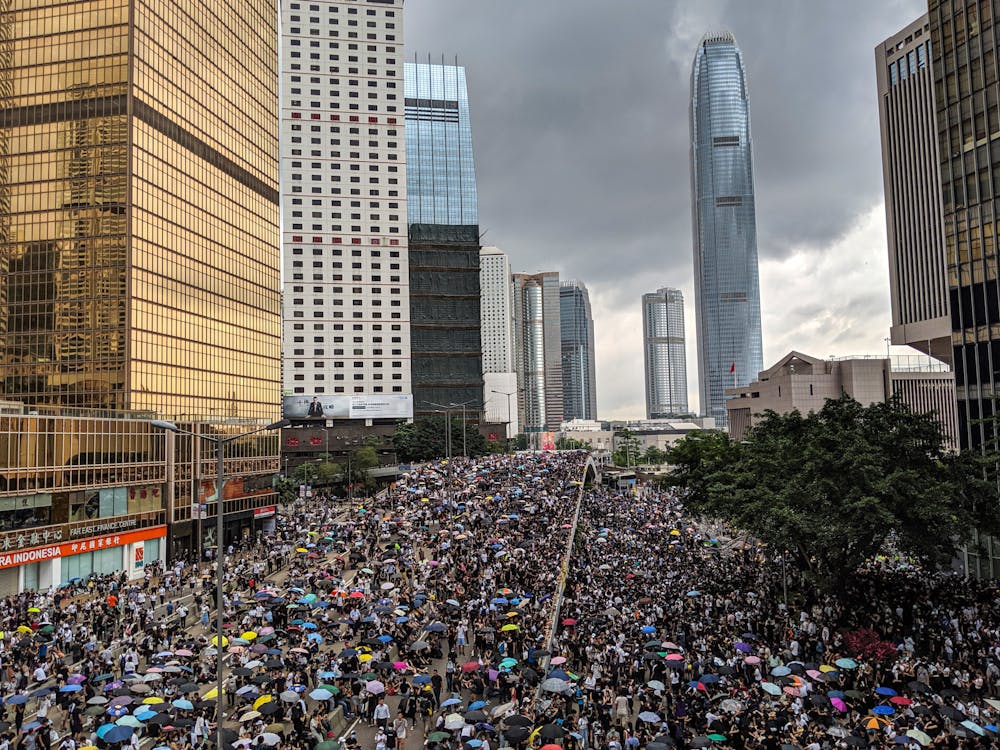By Gauri Patel
Staff Writer
Lawmakers in Hong Kong unanimously passed a new national security bill on March 19 that expands the government’s powers to crack down on dissent. Critics warn that the legislation, known as the Safeguarding National Security Bill, would further threaten civil liberties in Hong Kong and overseas, according to Reuters.
The bill introduces 39 new laws that broaden the definitions of crimes that authorities consider threats to national security and their penalties, including treason, espionage, insurrection, sabotage and external interference in Hong Kong’s affairs. The crimes vary in degree, from offenses leading to maximum life imprisonment, such as joining an armed force at war with China, to smaller offenses resulting in several years in jail, like the possession of state secrets, according to Reuters.
Hong Kong’s Legislative Council, consisting of a majority of pro-Beijing loyalists, fast-tracked the legislation at the request of the city’s leader, John Lee, who called for it to be enacted at “full speed.” According to The Associated Press, it was passed within two weeks of it being presented, and committee meetings were held daily for a week.
The legislation comes on top of a previous Beijing-imposed national security law passed in 2020 aimed at restoring stability after pro-democracy protests a year earlier, which sometimes turned violent. The Hong Kong government said the 2020 security law was successful at restoring stability, and the new law is necessary to fill loopholes and prevent a recurrence of the protests, according to NPR.
Hong Kong, a former British colony, was guaranteed the preservation of its civil liberties by Beijing for 50 years when it returned to Chinese rule in 1997. Critics, including the United States, argue that the new law would result in a further crackdown on society by narrowing those civil liberties, such as freedom of speech, and deterring dissent through fear of punishment. Some provisions of the new law will impact foreign citizens and companies operating in the city, in addition to those outside Hong Kong who violate the law.
Journalists have expressed fear that the broad definitions of “state secrets” and “sedition” will impact their day-to-day work by making it challenging to determine what constitutes a threat to national security and what can be published. In 2021, many pro-democracy media outlets, such as Apple Daily, were forced to cease operations after facing charges of distributing seditious publications. The Apple Daily’s offices were raided by police and its funds were frozen. The newspaper’s founder and senior editors were also arrested, according to NPR.
Many of the city’s companies are also concerned about the implications of the state secret and espionage offenses in the law, particularly involving the handling of sensitive economic data and research.
Despite these concerns, officials insist that the legislation only impacts a small minority of residents who endanger national security and that focus could instead be shifted towards advancing economic development and improving people’s livelihoods.
The new law drew criticism from global leaders, including the United States, the European Union and Japan. Secretary of State Antony Blinken released a statement criticizing the vague language of the bill regarding sedition and state secrets, in addition to the transnational implications of certain clauses.
“We [the United States] share concerns expressed by other nations that Hong Kong authorities could seek to apply the new legislation extraterritorially in their ongoing campaign of transnational repression, and condemn efforts to intimidate, harass, and limit the free speech of U.S. citizens and residents,” Blinken wrote in a press release.
The U.S. Congressional-Executive Commission on China published a letter addressing Blinken in which they said that the legislation will “further erode the rule of law and fundamental freedoms of people of Hong Kong and U.S. interests in the city” and urged the U.S. to take concrete action to hold the Hong Kong officials responsible.
Advocacy groups have called for nations to impose sanctions on Hong Kong and Chinese officials involved in the legislation’s passage, though no actions have been announced yet.







